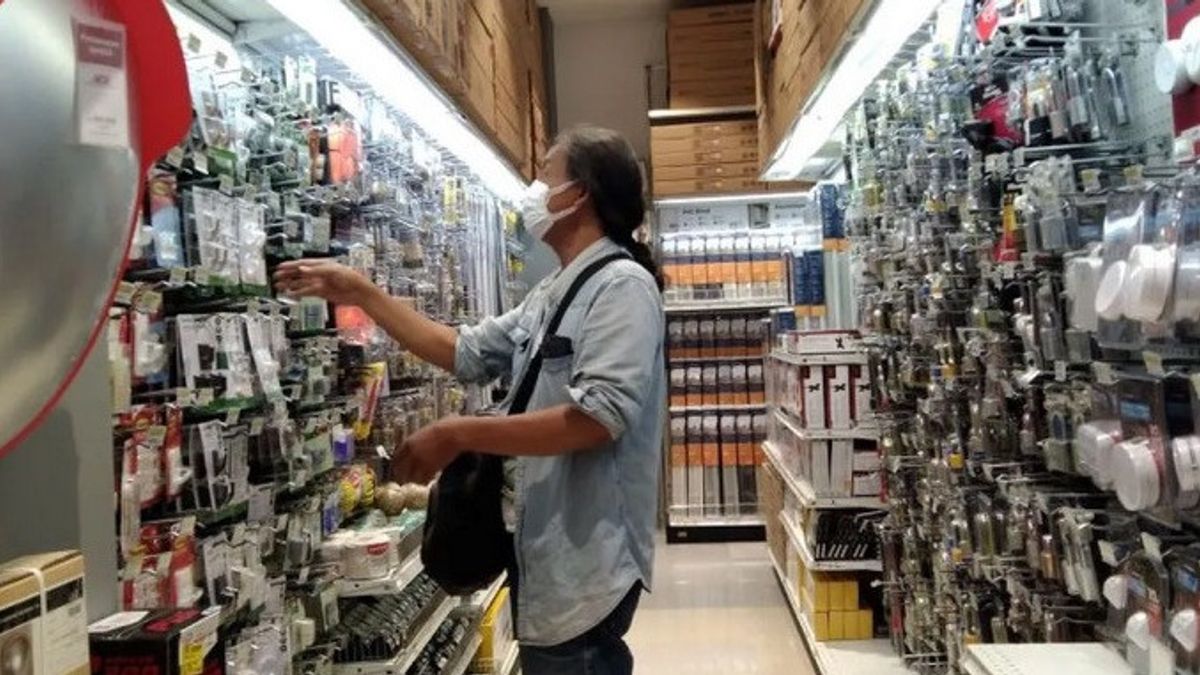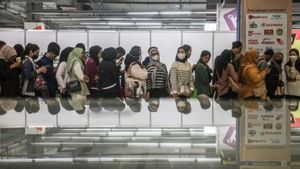JAKARTA The increase in Value Added Tax Rates or VAT to 12 percent has drawn criticism. The government is expected to allocate this additional state revenue to the public.
The plan to impose 12 percent VAT starting in 2025 finally gets a bright spot, after previously it was still a discourse. Minister of Finance (Menkeu) Sri Mulyani said the VAT tariff policy adjusted the mandate of the law. This means that this policy will be implemented on January 1, 2025, in accordance with Law Number 7 of 2021.
"There is already a law. We need to prepare it so that it can be carried out but that is with a good explanation," said Sri Mulyani while attending a Working Meeting with Commission XI of the DPR RI, DPR RI Complex, Jakarta, Wednesday (11/13/2024).
However, this policy is still a debate. People's purchasing power is predicted to be more sluggish following the kindness of the VAT rate of 12 percent, even though economic growth is contributed by household consumption.
Coordinating Minister for Economic Affairs Airlangga Hartarto once explained the reasons for the increase in VAT to 12 percent were taken for various factors, such as reducing dependence on foreign debt and adjusting to international standards.
The 11 percent VAT rate, which will be 12 percent next year, is still considered low compared to other developed countries. The Ministry of Finance said the average VAT worldwide, including the Organization for Economic Co-operation and Development or OECD, was 15 percent.
However, the main reason is that the increase in VAT is an effort to improve the government budget. As is known, as one of the main sources of state revenue, VAT has a vital role in funding various government programs. However, the need for funding is increasing, especially after the COVID-19 pandemic which has exacerbated fiscal conditions.
So it is not surprising that the government has taken a way to increase VAT, which has been discussed since 2021, when the world was hit by COVID-19. According to the records of the University of Indonesia (UI) Institute for Economic and Community Research (LPEM), VAT revenue has remained good despite the economic downturn due to the pandemic. VAT has also consistently been the main contributor to revenue, in addition to income tax (PPh) since 2010.
The increase in VAT rates, said economic policy analyst of the Indonesian Employers' Association (Apindo) Ajib Hamdani, has the potential to increase state revenue by around Rp. 80 trillion. But on the other hand, this can also reduce purchasing power which in turn puts pressure on economic growth.
Executive Director of the Center of Economic and Law Studies (CELIOS) Bhima Yudhistira said that sales of secondary products such as electronics, motorized vehicles, to cosmetics or body care could slow down, because the middle class was the main target of VAT of this group's goods.
Other effects can be felt by business actors. Price adjustments due to the increase in VAT rates have the potential to have an impact on turnover, which then affects the adjustment of production capacity to a decrease in the number of workers. If conditions continue, said Bhima, what might happen is termination of employment (PHK).
The number of layoffs increased due to the decline in the number of middle class, which then led to a decrease in purchasing power so that the economic growth to be achieved was difficult to realize. That's roughly the 'cycle' that might happen if this new VAT rate is implemented.
SEE ALSO:
"The government must rethink the plan to increase the VAT rate by 12 percent, because it will threaten economic growth contributed by household consumption," said Bhima.
For this reason, Bhima Yudhistira believes that the expansion of tax objects is more effective in increasing state revenues than increasing VAT by 12 percent. The government can start discussing wealth tax or wealth tax with a potential of IDR 86 trillion per year.
He believes, in the midst of the economy like now, it is not the time to increase the VAT rate to increase state revenue.
Meanwhile, if the 12 percent VAT rate is really implemented, the government is expected to develop policies that can offset the effects of tariff increases. This is done so that economic stability is maintained. The government must also ensure that people get equal reciprocity.
Currently, people are reacting negatively to the news of the increase in VAT starting in 2025. According to tax observer and research manager of the Center for Indonesia Taxation Analysis (CITA) Fajry Akbar, negative reactions from the public because their level of trust in the government has declined.
"People don't believe that the tax money they pay will return to them," Fajry said, citing Antara.
According to Fajry, the increase in VAT rates to 12 percent will result in a large additional revenue. That way, the government needs to ensure that additional receipts are distributed to the public, both in the form of public facilities and social security.
"I'm sure the public will accept that this tariff increase is in line with improving public services, aka returning to the community," he said.
On the other hand, Bank Permata Chief Economist Josua Pardede proposed an increase so that the government would strengthen social assistance and incentives as a solution to reduce pressure from rising VAT rates. Social assistance policies are considered to be able to help balance the purchasing power of the community due to rising prices of goods and services.
The government can also increase incentives such as business credit subsidies or tax reductions for small, micro and medium enterprises (MSMEs). This method, said Josua, can help business actors adjust to increasing tax burdens. He believes incentives like this can support the competitiveness of MSMEs and prevent productivity due to additional costs.
The English, Chinese, Japanese, Arabic, and French versions are automatically generated by the AI. So there may still be inaccuracies in translating, please always see Indonesian as our main language. (system supported by DigitalSiber.id)














